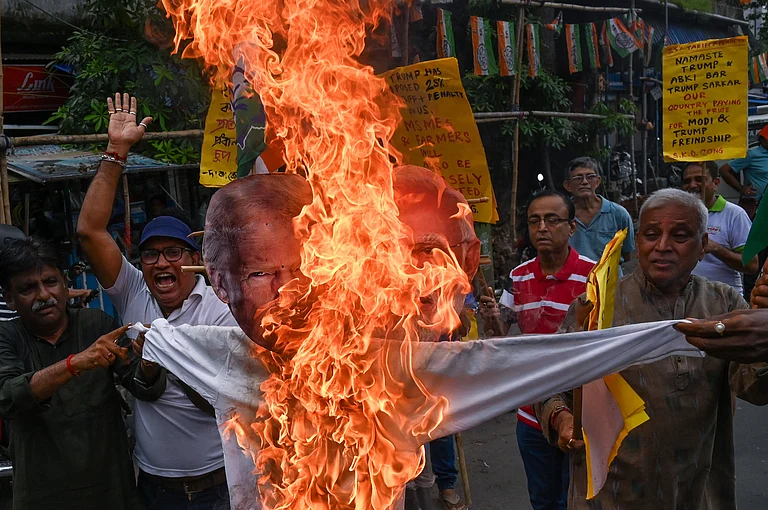The Palestinian terrorist group Hamas, which controls the Gaza Strip, has begun what its commander Mohammed Deif called ‘Operation Al Aqsa Storm’ to avenge what he calls “crimes of occupation” perpetuated by Israel and to free thousands of Palestinian prisoners in jails across Israel.
The flashpoint for the Hamas offensive was the incident in which thousands of Israeli settlers forced their way into Al Aqsa Mosque during the recent Sukkot holiday in Israel. Israeli settlements have steadily increased and violent action against Palestinians has escalated as the international community has turned a blind eye even though the United Nations (UN) has highlighted the plight of the Palestinians and the increasingly aggressive moves by the Israeli settlers.
The ongoing Hamas attack on Israel on Saturday is an act of desperation against the provocation by Israeli settlers on the Al Aqsa Mosque complex. The action of the Jewish settlers who poured into the complex was supported and aided by ministers in Benjamin Netanyahu’s cabinet. The world kept mum. Israeli settlements in the West Bank have steadily increased and the new settlers have resorted to attacks on Palestinians resisting attempts to take over their lands. This year alone, there have been 200 incidents of such attacks — many of them leading to Palestinian deaths.
The Gaza Strip where around 3 million people live is like a prison, with few avenues of employment and people living cheek-by-jowl in crowded tenements. The young are frustrated and would rather face bullets and fight for their land than give in to the daily humiliation heaped on them by Israelis.
It is well known that Israel will strike back with triple the force. Hardline Prime Minister Benjamin Netanyahu has already said that the country is at war. Israeli forces will carry out aerial bombardments across Palestinian territory and its army will hunt down Hamas terrorists. The fight is not between two equals. The Hamas is after all a terrorist group. It is poorly equipped and cannot match the fighting machine of the Israeli state, equipped with sophisticated equipment and an unending arsenal. Israel is backed by the United States and the West.
Moreover, the support for the Palestinian cause is now minimal even among the Arab countries, which were once staunch defenders of Palestinian rights. For Netanyahu, this is an excellent opportunity to redeem his political image that’s seen a steady downturn since his attempts at judicial overhaul.
The result of this morning’s attack by Hamas will result in more misery for Palestinian civilians who are already reeling under an enormous shortage of supplies and a crumbling infrastructure. Yet people will not blame Hamas for launching an attack on Israel — however feeble.
Today’s action is an attempt by Hamas to bring the focus back to the region and stop more Arab nations from normalising ties with Israel. The Palestinian cause has fallen off the international radar for over two decades or so and Arab leaders too have given up their earlier support for Palestine.
Following the US-brokered Abraham accords signed on September 15, 2020, between Israel and the United Arab Emirates (UAE) and Bahrain to establish diplomatic ties and normalise relations, more Arab countries are lining up to do so. The Abraham Accords, finalised in the last few months of the Trump administration, is regarded as a major diplomatic triumph for the United States. Former US President Donald Trump’s son-in-law and the then-Senior Advisor Jared Kushner was the main architect of the agreement. Morocco and Sudan also signed accords to recognise Israel and have normal diplomatic ties with Israel, a country once shunned by the Arab world.
Saudi Arabia was also supposed to be one of the signatories but backed out at the last moment. The buzz in recent days is that Saudi Arabia’s Crown Prince Mohammed Bin Salman —better known as MBS— is now ready to normalise ties with Israel. Saudi Arabia, as the keeper of the keys to Sunni Islam’s most sacred symbols, has a great deal of influence in the Muslim world. The Saudi endorsement of Israel would open the floodgates for other Muslim countries to follow. Will Hamas succeed in stopping MBS from recognizing Israel? Perhaps the wait will be longer and Saudi Arabia will not do so just now.



























